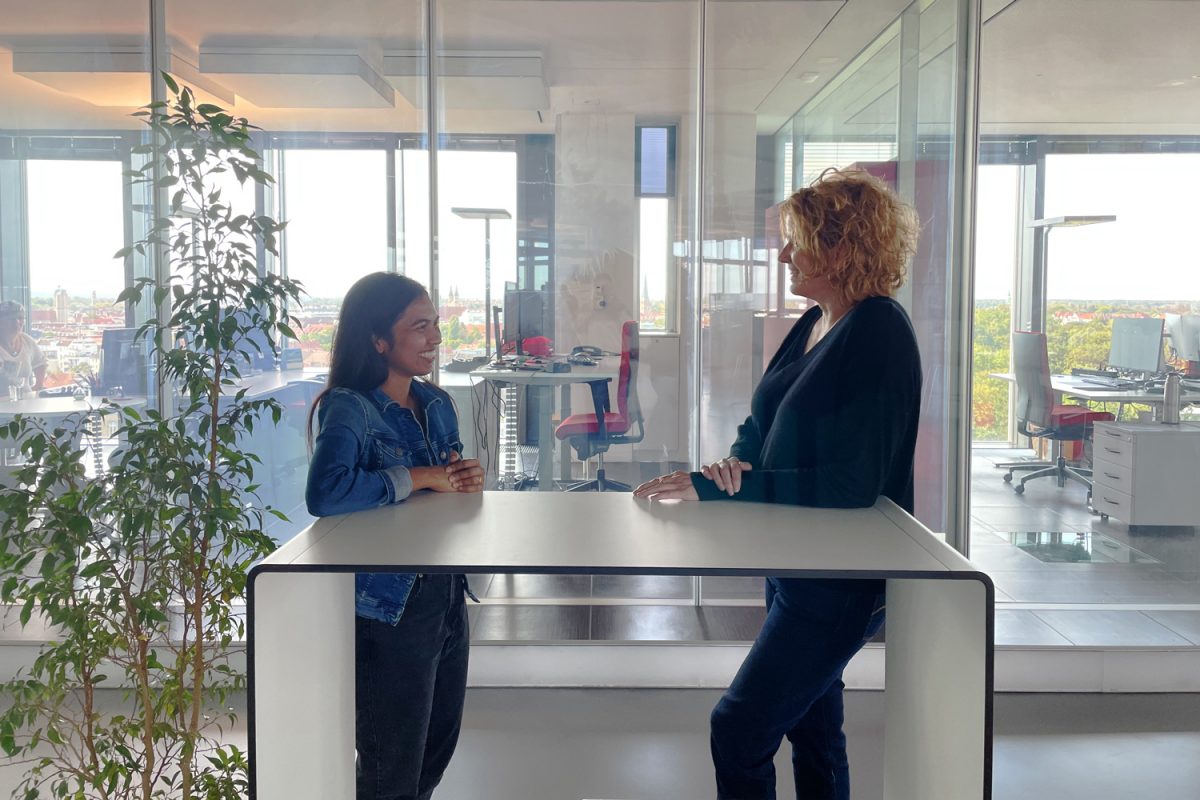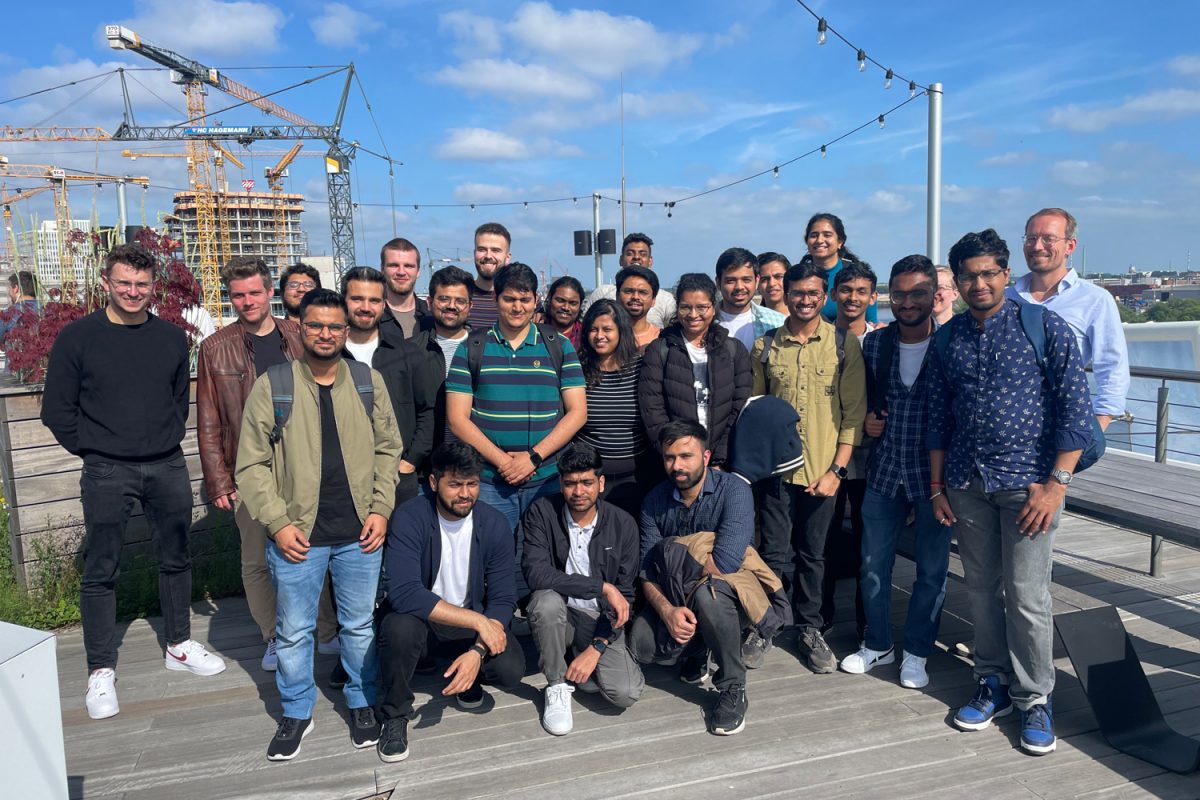Comprehensive support: The key to success CSE’s welcoming culture and onboarding services
Expanding the number of English-language degree programmes with an international orientation is a stated goal at TU Braunschweig. This encompasses more than just the conceptual matters such as the content and structure of these programmes – the target population poses its own particular challenges. So, what are the key issues when it comes to supporting international students?
Low dropout rate and high level of satisfaction
In the 2023 summer semester, roughly 90 percent of students enrolled in Computational Sciences in Engineering (CSE) were international students. And interestingly, the number of dropouts from this degree programme is exceptionally low: in the last four semesters, it has been less than 3%. Which begs the question, what are the reasons for this? “Our international students come from a broad range of backgrounds, and many of them have no prior academic or life experience outside their home countries. They need a variety of support to help them overcome their culture shock and get their feet on the ground here in Braunschweig”, explains Professor Rolf Jänicke, Dean of CSE. “We are very aware of this special situation. At CSE, we have a first-rate, well-functioning team with years of experience. This allows us to deliver intensive support to our international students, including – but by no means limited to – academic advice.”
Onboarding workshops before the start of classes

Annika Kleinwächter (on the right) has been CSE Programme Coordinator for the past 10 years. Photo: CSE/TU Braunschweig
One member of this fantastic team is Annika Kleinwächter, CSE Programme Coordinator for the past 10 years. She knows all about the obstacles and worries that international students face when coming to Germany. “You need to get your bearings in a foreign country, learn the language, understand the academic system and make friends. Especially during the first few weeks, new students face challenge after challenge”, Kleinwächter explains. “So, we place a strong emphasis on fostering a welcoming culture, in which the staff at TU Braunschweig is there for our students and supports them in the best way possible.”
In the CSE programme, this process begins before the students even get to Braunschweig. Right after sending out its letters of acceptance, the team offers online onboarding workshops that give students the chance to ask any questions they may have. “Many students only make their final decision to study at TU Braunschweig after one of those workshops”, Kleinwächter says. She herself has spent time abroad, both studying and working.
“It’s important to instil a sense of belonging to the university”
A few weeks later, the students receive a warm welcome in Braunschweig, with a party thrown in their honour, where they can meet their fellow students and lecturers. On top of that, the Programme Coordinator’s office has an open-door policy from the beginning of the semester to mid-November. During that time, students can drop by with their questions and concerns, without needing an appointment. And to encourage interactions between international and local students, everyone must take a compulsory intercultural training course at the start of their studies.
“It’s always easy to get hold of someone at the CSE office if you have a question”, says CSE student Aileen Brendel. “This made me feel supported from the beginning of my studies. Also, during the first semester, every student chooses a lecturer to be their mentor, who will help them pick their classes. That was really helpful to me.” CSE student Abdulbaki Kocabasa is pleased with the mentoring programme as well: “My mentor advised me on my academic and professional decisions, which was incredibly valuable. The mentorship programme from the CSE office was a crucial support for me”.
In addition to the mentoring programme, CSE students are required to participate in feedback sessions after the second and fourth semesters if they have not accrued 30 or 60 credits by the end of each term, respectively. Whenever they need it, students can request a guidance meeting to discuss their progress and any problems they may be facing. Annika Kleinwächter is convinced that this makes a crucial contribution to students earning their degrees. “We want to encourage students to develop a solid sense of belonging to the university, and use our services to give our students every chance to successfully complete their studies. In our experience, this works much better if they know their contact people well and have no hesitations about getting in touch.”

Company excursions are organised for students several times a year. This often leads to valuable contacts for later career entry. Photo: CSE/TU Braunschweig.
But giving students the best possible academic support is not all the CSE team cares about. Getting to know other CSE students and alumni plays an important role in students building strong social lives and establishing a network of contacts for their future careers. Every year sees a four-day company excursion to Hamburg, as well as other excursions to companies in the region. The annual CSE Barbecue is another great opportunity for students to network with alumni, staff, fellow students and sponsors. And it really works, as Abdulbaki Kocabasa reports: “During one of these grilling events, I had the chance to connect with an alumnus, and thanks to our alumni network, I was able to secure an internship at one of Germany’s largest companies”.
Allocating resources for mentoring
All of this requires a significant amount of work, which the CSE team shoulders in addition to their day-to-day programme coordination tasks. In spite of this, Professor Jänicke is in favour of introducing more English-language degree programmes, but with realistic expectations: “English-language teaching provides a great opportunity to attract the best and brightest to Braunschweig from around the world. Language training and a close-knit support structure are key to international students finding their place here. In other words, we need to bear in mind that there’s no such thing as a free lunch. International degree programmes demand substantial resources and cannot be created as afterthoughts.”
This is why Kleinwächter wants to improve how synergies are put to work at TU Braunschweig and has launched an exchange format among the university’s international degree programme coordinators. “We want to strengthen this kind of exchange and share our wealth of experience with each other. In addition, we would like to work more closely with the International Student Support, as many of its services are very useful to our students.
